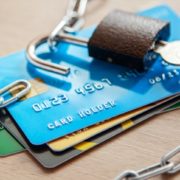A quick word to the wise, the IRS will not call you under any circumstances, as they only contact you via mail. Also, the Social Security Administration will call only if you’ve placed a call to them. These two facts will help you sort out legitimate communications from the illegitimate.
15-steps to secure your identity :
1. Report the fraud to the three major credit bureaus and review your credit report thoroughly.
-
- Equifax: (800) 525-6285 / https://www.equifax.com/CreditReportAssistance/
- Experian: (888) 397-3742 / https://www.experian.com/fraud/center.html
- TransUnion: (800) 680-7289 / https://www.transunion.com/fraud-victim-resource/place-fraud-alert
2. California victims of identity theft are allowed free credit reports monthly for 12 months following the date of the police report. (Cal. Civ. Code §1785.15.3(b)) The method of requesting these varies depending on the credit agency.
3. Report the fraud to the police and save the police report to use when reporting the fraud elsewhere.
4. For identity theft related to tax returns and employment, call the IRS Identity Protection Specialized Unit at (800) 908-4490 to have the IRS put an account marker on your Social Security number. This will allow any IRS employee who deals with the file to be aware of the ID theft. File Form 14039, IRS Identity Theft Affidavit.
5. Contact the Franchise Tax Board Theft Resolution Coordinator at (916) 845-3669. File Form FTB 3552, Identity Theft Affidavit, and supporting documents.
6. If your credit or debit card account has unauthorized charges, contact your bank or account issuer to report the transactions. Close the accounts. If checks were stolen, contact major check verification companies and ask that they not accept checks on the closed account.
-
- TeleCheck: (800) 710-9898
- Certegy: (800) 437-5120
- To find out if the identity thief has passed bad checks in your name, call SCAN at (800) 262-7771.
7. Follow up with the credit bureaus via mail, and include copies of the police report and ID Theft Affidavit.
-
- Equifax, P.O. Box 740241, Atlanta, GA 30374
- Experian, P.O. Box 9532, Allen, TX 75013
- TransUnion, P.O. Box 2000, Chester, PA 19016-2000
8. Report the fraud to creditors if the thief opened accounts in your name. Ask for the security or fraud department. Report the fraud via telephone and regular mail.
9. Consider a credit freeze. This means that your credit file cannot be shared with potential creditors, insurers, employers, or residential landlords without your permission.
10. If you are contacted by debt collectors, explain that you are not responsible for the debt, and follow up in writing.
11. If your driver’s license was stolen, call your local DMV office, and report the theft and ask them to put a fraud alert on your license. Contact the DMV ID Theft Hotline at (866) 658-5758.
12. If your mail was stolen or if someone filled out a change of address request in your name, contact the Postal Inspector to report the theft at (800) 275-8777 or file a complaint at https://postalinspectors.uspis.gov/
13. If your Social Security number was used to claim unemployment benefits, contact the EDD’s Fraud Hotline at (800) 229-6297 or use the EDD’s Fraud Reporting Form at https://askedd.edd.ca.gov/ReportFraud.aspx
14. If your Social Security number was used to claim Social Security benefits, call the Social Security Administration’s Fraud Hotline at (800) 269-0271. You can also report fraud on the SSA’s website.
15. If your Social Security number was used to claim Medicare, Medi-Cal, or other social services, call the Department of Health and Human Services Office of the Inspector General at (800) 447-8477 (for Medicare fraud). Call the California Department of Health Care Services Medical Fraud Reporting Hotline at (800) 822-6222 (for Medi-Cal fraud). Call the California Department of Social Services Welfare Fraud Referral Hotline at (800) 344-8477 or by e-mail at FraudHotline@dss.ca.gov (for other social services–related fraud).
References:
Spidell Publishing, Inc.
Checklist from “Identity Theft Victim Checklist” California Office of the Attorney General. Available at: https://www.oag.ca.gov/idtheft/facts/victim-checklist. To download a copy of this checklist, go to: https://www.caltax.com

